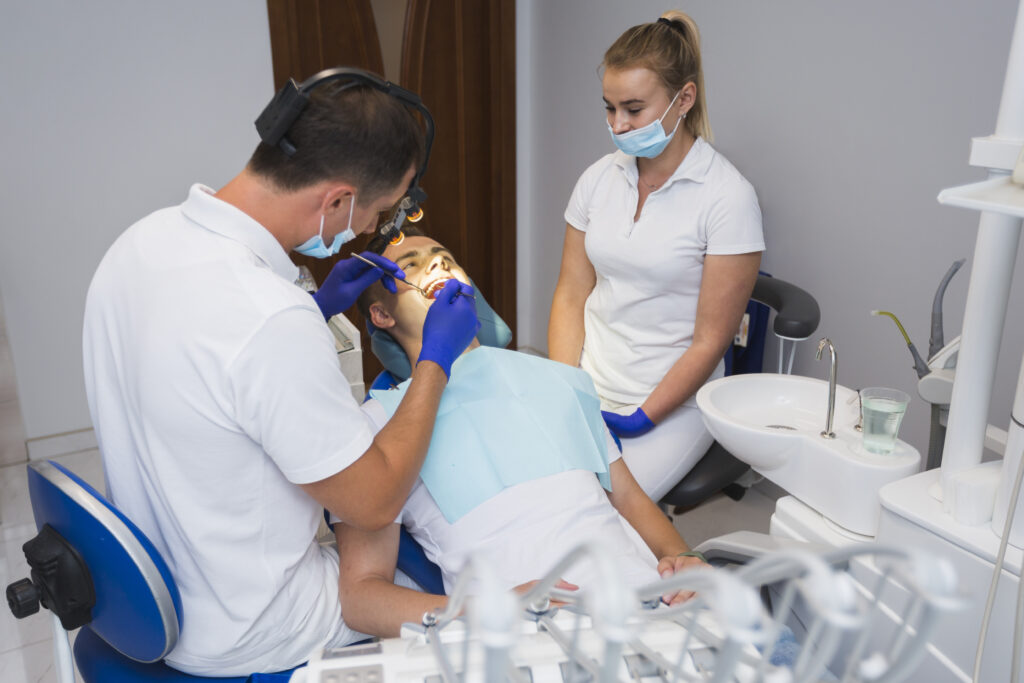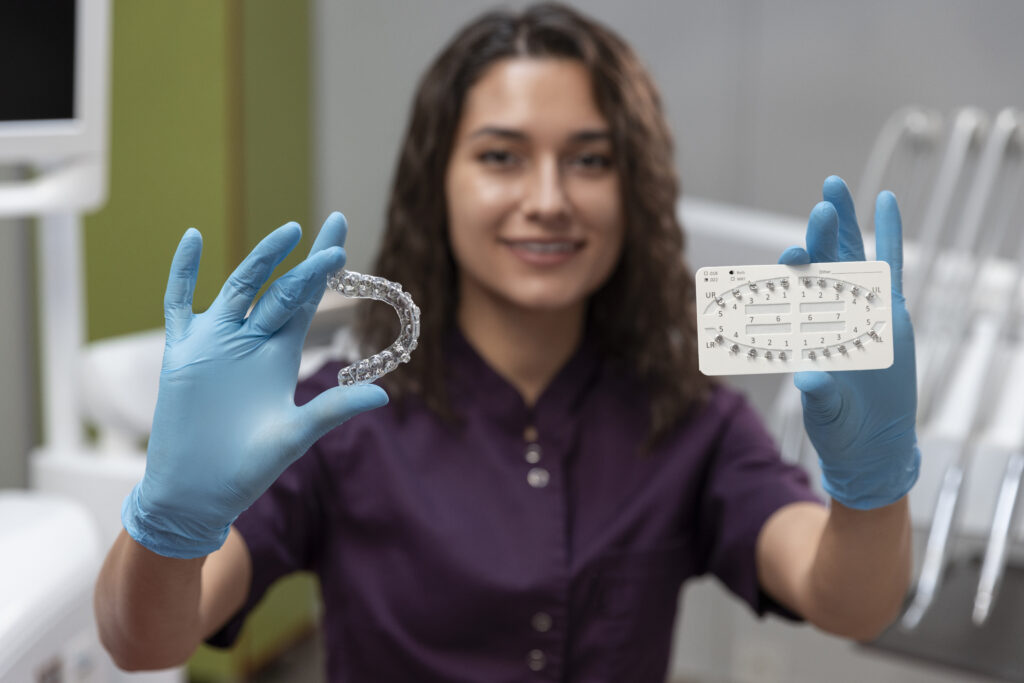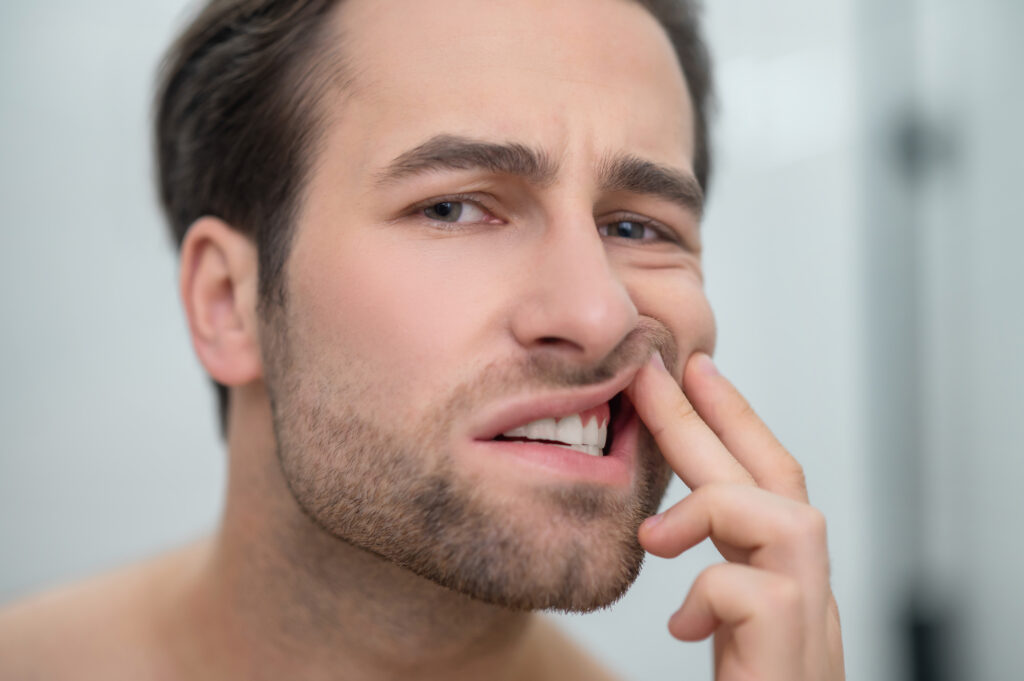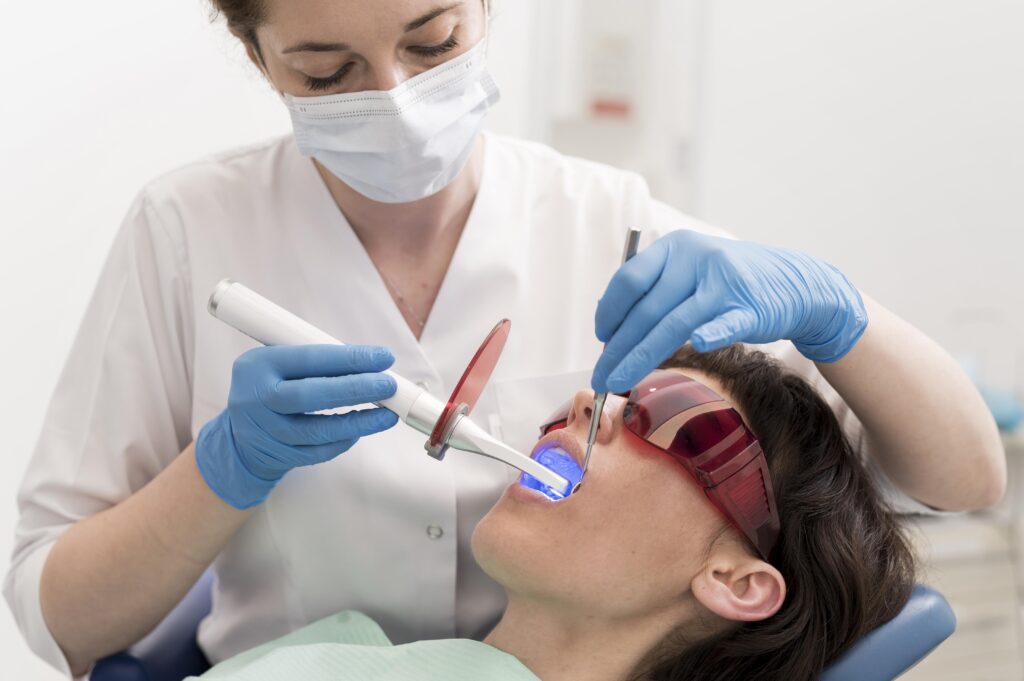Jaw pain isn’t something most of us expect to deal with every day. Yet, at Puri Dentistry in Oxnard, we meet plenty of patients who come in worried about soreness near the ears, headaches that just won’t quit, or a clicking sound every time they chew. Many don’t realize these little issues often tie back to the same thing: TMJ disorder.
It can start small. A little stiffness in the morning, or a popping sound when you yawn. But left alone, it may grow into something that interferes with eating, talking, or even sleeping. If you’ve been ignoring jaw pain, now’s the time to understand what’s going on and what you can do about it.
What Exactly Is TMJ Disorder?
Your temporomandibular joint (TMJ) is the hinge that connects your jawbone to the rest of your skull. It’s what lets you move your mouth up, down, and side to side when you eat or speak.
When this joint or the muscles around it get irritated, strained, or misaligned, you may develop TMJ disorder (often called TMD). That’s when daily activities like chewing or even opening your mouth wide can suddenly feel painful.
Think of how much this joint actually does:
- It allows your mouth to open smoothly.
- It shifts your jaw so you can chew from side to side.
- It keeps your bite balanced while you eat or talk.
When the system stops working as it should, the results are hard to ignore.
What Causes TMJ Disorder?
As dentist in Oxnard, we see patients with TMJ issues caused by a variety of things. Sometimes it’s one main trigger, sometimes it’s a combination.
- Teeth grinding or clenching (often during sleep).
- Injury to the jaw from a fall or accident.
- Arthritis affecting the jaw joint.
- Misaligned bite that strains the joint.
- Stress that keeps jaw muscles tight all day.
The signs are different for everyone. But the common ones we hear about include:
- A dull ache or sharp pain near the ears.
- Clicking or popping noises when opening wide.
- Headaches that don’t respond to the usual remedies.
- Jaw stiffness, especially in the morning.
- Feeling like the jaw “sticks” when chewing.
If you’re nodding along to any of these, it may be time to get checked. What feels like random headaches or muscle tension could actually be TMJ disorder.
How Puri Dentistry Approaches TMJ Care
At Puri Dentistry, we don’t believe in one-size-fits-all treatment. Every patient’s jaw tells a different story, so we start with a careful exam. That may include X-rays, bite analysis, and a discussion about your symptoms and habits.
- Custom night guards or splints to stop nighttime grinding.
- Jaw exercises and stretches tailored to improve movement.
- Stress management tips, since tension is a big factor.
- Bite corrections if misaligned teeth are part of the problem.
Only in rare, severe cases would surgery even be considered. Most of our Oxnard patients find relief through simple, non-invasive options. And if you’re in for your regular teeth cleaning, our team often spots signs of jaw strain early.
Quick At-Home Relief Tips
While you wait to see a dentist in Oxnard, try doing these things to feel better:
- Use a warm compress to help relax tight muscles. If the area is swollen, use a cold pack instead.
- Stick to softer foods to avoid overworking your jaw.
- Skip gum and nail-biting, both add strain.
- Try light jaw stretches (we’ll show you safe ones at the office).
- Focus on lowering stress, simple breathing or short walks can make a difference.
These steps usually provide short-term comfort. But if the pain or clicking keeps coming back, that’s your sign professional care is needed.
Don’t Put Off Relief
TMJ problems rarely fix themselves. In fact, they often become more stubborn over time. Catching the issue early usually means easier treatment and fewer long-term complications.
At Puri Dentistry in Oxnard, we’ve helped many patients who thought they’d “just live with it” finally enjoy relief. If you have jaw pain, take action before it gets worse.





